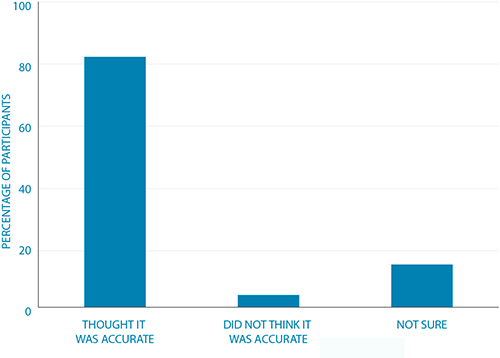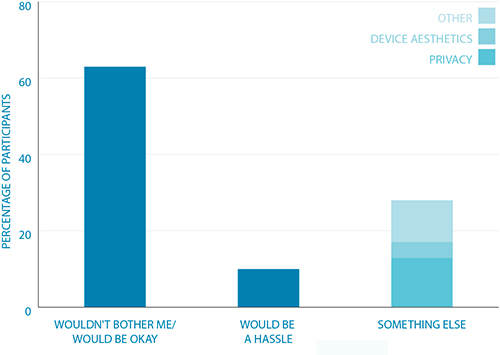Shifting attitudes
At the start of the study 85% said they were comfortable with the current funding system. After experiencing alternative road-charging options 60% said they preferred a user-pays system.
study insights
Participants also provided insights into the elements they would want to see addressed in the design and implementation of any new road-funding system, including: transparency and awareness; choice; fairness; technology; and privacy and information security.
TRANSPARENCY AND AWARENESS
Through involvement in the study and experiencing a more direct and transparent way of paying for roads, one in two participants reported they became more aware of their road use (47 per cent) compared with just 11 per cent of those who did not try a user-pays option. In addition, over the course of the study, participants’ understanding of the current road-funding system increased by 23 per cent.
By experiencing a direct and transparent way of paying for their road use, participants showed a willingness to consider changing their road-use behaviours and an openness to shifting to a user-pays system, even over the relatively short timeframes of the study.
Choice
Practical access to alternative transport modes and wider factors like work hours, school hours and retail opening hours all impact the amount of choice road users have in when and where they drive.
Thirty per cent of participants said they changed their road use during the study. Of those who provided details, 30 per cent said they had used more public transport, 23 per cent said they walked more, five per cent said they cycled more and seven per cent said they car pooled.
Fairness
Of participants who said they would be comfortable paying for roads in a new way, 15 per cent highlighted aspects relating to fairness that would need to be addressed in any future system.
When considering a user-pays system, participants wanted to see benefits flow across the entire community and transport network. Participants also expected any new system to be fair and equitable for all users and reinforced the need for it to provide protections for vulnerable and disadvantaged community members. They also expected that other taxes would be eliminated to make way for the introduction of a user-pays system.
Participants’ views on accuracy of the device

Technology
Advances in technology present potential solutions to enable a modern-day road-charging model.
Participants showed openness to trialling new technologies, including in-vehicle GPS technology. Eighty-four per cent were comfortable with the device in their vehicle. In addition, 82 per cent agreed that the GPS devices accurately measured their road usage.
The study demonstrated that technology is not a barrier to the implementation of a usage-based charging system.
Privacy and Information SECURITY
While participants were generally comfortable with the technology system used in the study, they reinforced the importance of personal information security and protection in any system design. More than 60 per cent of participants said they would be comfortable having the GPS device in their car indefinitely, while 13 per cent mentioned issues relating to privacy and information handling would need to be considered prior to the implementation of a broad-based system.
Participants’ views on having the devices in their car indefinitely

